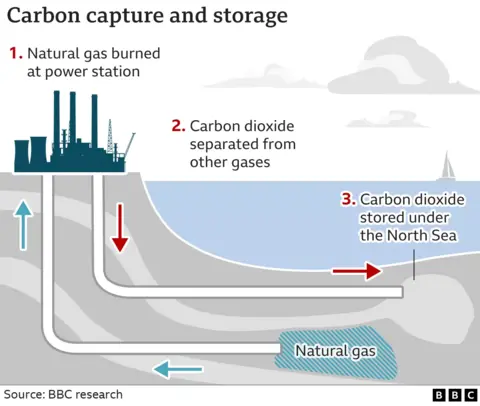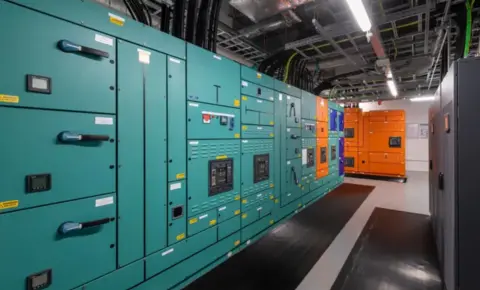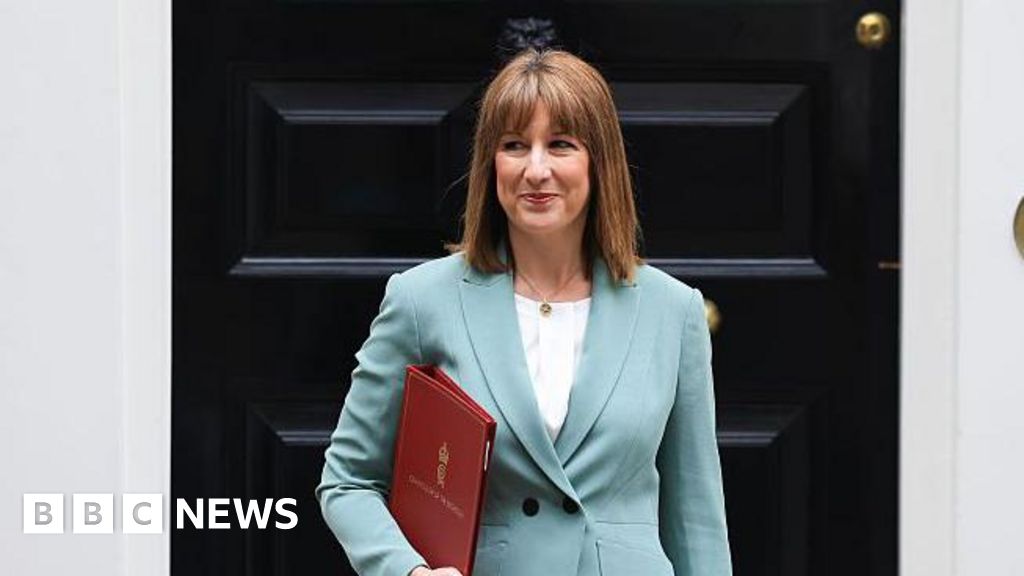BBC News Scotland
 North Sea Midstream Partners
North Sea Midstream PartnersThe UK Government has said its Spending Review plans will deliver £52bn for Scotland in the coming years.
Chancellor Rachel Reeves set out plans for increased spending in Scotland on defence, computing and the development of carbon capture technology.
This includes £250m for the Royal Navy’s nuclear submarine base on the Clyde and up to £750m to bring the most powerful supercomputer in the UK to Edinburgh.
Reeves said the Spending Review – which sets the day-to-day budgets of all UK government departments over the next three years – provides Scotland with the “largest settlement in real terms since devolution was introduced”.
The chancellor announced the Scottish government would receive an average block grant of £50.9bn per year over the next three years.
Reeves also laid out increased funding for the NHS and housing in the rest of the UK.
However, it remains unclear at this stage how these announcements will impact Scottish Government budgets this year.
What changes will there be for defence spending?
Reeves said overall UK defence spending will rise to 2.6% by April 2027 as part of a plan to make Britain a “defence industrial superpower”.
This includes a promise to spend “an initial £250m” over three years on the Faslane submarine base, “supporting jobs, skills and growth across the west of Scotland”.
Details of what the investment will involve have still to be released but defence Secretary John Healey has said “the long-term, sustained investment for HMNB Clyde will provide the infrastructure necessary to keep our submarines maintained and at sea – continuing to protect us around the clock”.
The chancellor also announced £4.5bn would be invested in munitions at sites across the UK, including Glasgow.
 PA Media
PA MediaDevelopment funding to advance a carbon capture project in Aberdeenshire was also announced in the UK Government’s Spending Review.
The Acorn Project based in St Fergus would take greenhouse gas emissions and store them under the North Sea, in a process known as carbon capture and storage (CCS).
It comes following calls from business leaders for investment in the long-delayed project, which has been on a reserve list for funding.
The exact amount of development funding for the project has not been announced and UK government documentation published with the Spending Review states “a final investment decision will be taken later this parliament, subject to project readiness and affordability”.
Reeves said: “These are investments to make sure the towns and cities which powered our last industrial revolution will play their part in our next industrial revolution, to reduce our reliance on overseas oil and gas and protect working families from price shocks.”
SNP Westminster leader Stephen Flynn said: “It is welcome that after years of Westminster delays and funding snubs we have finally secured a measure of progress towards making the Acorn project a reality to create jobs and investment for our communities.
“However, the glaring omission in today’s announcement was any detail on the scale of funding and the timescales for delivery which stands in stark contrast to the £22bn commitment the Labour Government has already given to carbon capture projects in England.”
How does carbon capture and storage work?

What is the Edinburgh super-computer project?
 University of Edinburgh
University of EdinburghThe review also plans for the building of the most powerful supercomputer in the UK at the University of Edinburgh.
The chancellor pledged up to £750m for the scheme, which will give scientists from across the UK the computing power needed for research on projects such as modelling climate change or developing new medicines.
Funding for the supercomputer was dropped when Labour took power after last year’s General Election but has now been reinstated.
Secretary of State for Scotland Ian Murray said: “This is a landmark moment and will place Scotland at the forefront of the UK’s technological revolution.
“This will see Scotland playing a leading role in creating breakthroughs that have a global benefit – such as new medicines, health advances, and climate change solutions. “
The new supercomputer will vastly exceed the capacity of the UK’s current national supercomputer, Archer2, which is also housed at the university.
Prof Sir Peter Mathieson, principal and vice-chancellor of the University of Edinburgh, said “This significant investment will have a profoundly positive impact on the UK’s global standing, and we welcome the vast opportunities it will create for research and innovation.”
The university has already spent £31m on the infrastructure required to house the new supercomputer.


















































